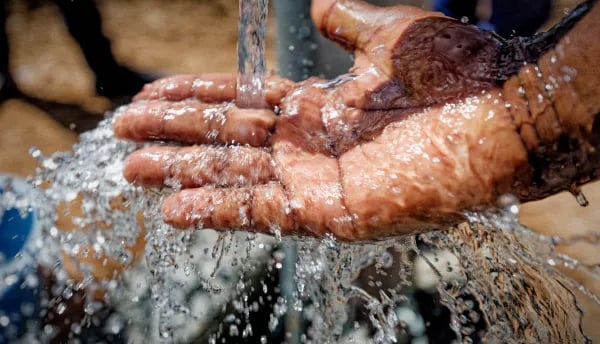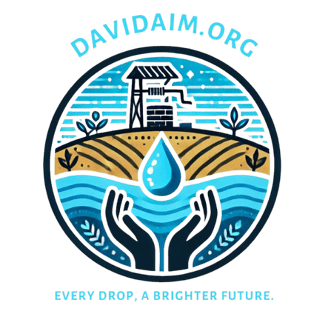Why Clean Water Access Is a Basic Human Right
Why Clean Water Access Is a Basic Human Right—it’s essential for life. Millions of people still lack safe drinking water, leading to disease and economic struggles. In this post, we explore why clean water should be a fundamental right and what is being done globally to improve access.
david aim
2/9/20253 min read


How One Water Well Can Change a Village
A single water well can transform a community by reducing disease, improving hygiene, and allowing children (especially girls) to focus on education rather than spending hours collecting water. We share real examples of villages that have been changed through clean water access.Stories from the Field: A Village Transformed by Clean Water
Firsthand stories from a village that recently gained access to clean water. How their daily lives have changed, what it means for their health, education, and economy, and what challenges still remain.The Biggest Water Scarcity Challenges in Africa Today
Africa faces some of the toughest water challenges, from droughts to poor infrastructure. We discuss the main issues and what solutions are currently being tested to combat these difficulties.The Science of Water Filtration: How It Saves Lives
Not all water is safe to drink. Contaminated water causes life-threatening diseases, but modern filtration systems are making a difference. This post explains different filtration methods used in humanitarian efforts and how they provide sustainable solutions.
Sustainability & SolutionsHow Rainwater Harvesting Can Help Fight Water Scarcity
Collecting and storing rainwater is one of the most sustainable ways to provide clean drinking water. Learn how rainwater harvesting works, where it’s most effective, and how communities can implement it.The Role of Solar-Powered Wells in Providing Clean Water
In regions where electricity is scarce, solar-powered wells are a game-changer. This post explores how these systems work, their long-term benefits, and examples of successful projects.5 Innovations Changing the Way We Access Clean Water
From self-cleaning wells to water purification tablets, technology is advancing rapidly in the clean water sector. We take a closer look at five groundbreaking innovations making water access easier.Why Hand Pumps Are Still the Most Reliable Water Solution
Despite advancements, hand pumps remain one of the simplest and most effective ways to provide clean water. We discuss why they work so well, their durability, and why they’re still widely used.The Connection Between Deforestation and Water Shortages
Cutting down forests doesn’t just impact wildlife—it affects water availability. This post dives into how deforestation disrupts rainfall patterns and what can be done to restore the balance.
Health & Education
How Clean Water Reduces Child Mortality Rates
Dirty water is one of the leading causes of disease in children. Clean water drastically reduces cases of diarrhea, cholera, and other life-threatening conditions. Here, we examine the statistics and the importance of clean water for child health.The Impact of Clean Water on Girls' Education
Many girls in developing countries spend hours fetching water daily, preventing them from attending school. Access to clean water can change that. We explore how education rates improve when water is readily available.Why Hygiene Education is Just as Important as Clean Water
Simply providing clean water isn’t enough—people need to understand how to use it safely. This post explains why education on sanitation and hygiene is crucial to preventing disease outbreaks.The Link Between Climate Change and Water Crises
Climate change is making clean water access even harder, causing droughts, unpredictable rainfall, and water pollution. We discuss how global warming affects water supplies and what can be done.How Water Scarcity Fuels Conflict and Migration
Water scarcity leads to competition, displacement, and even wars. This post examines the regions most affected and how sustainable water management can help prevent conflict.
Charity & How to Help
How Small Donations Make a Big Impact on Clean Water Projects
You don’t need to be a millionaire to make a difference. This post breaks down how even small donations can contribute to well-building projects, water filters, and hygiene education.Volunteer Stories: What It’s Like to Help Build a Well
Hear from real volunteers who traveled to remote communities to help build water wells. Their experiences, challenges, and the emotional reward of seeing lives change firsthand.How Companies Can Support Clean Water Initiatives
Corporate social responsibility programs can play a big role in funding water access projects. We explore how businesses can contribute and the benefits of partnering with NGOs.Why Access to Water is Key to Ending Poverty
Clean water fuels agriculture, education, and public health—helping communities break the cycle of poverty. This post examines the direct links between water access and economic improvement.How You Can Take Action for Clean Water Today
Whether it’s donating, spreading awareness, or starting a fundraiser, there are many ways to get involved. We provide a simple guide to taking action today and making an impact.


